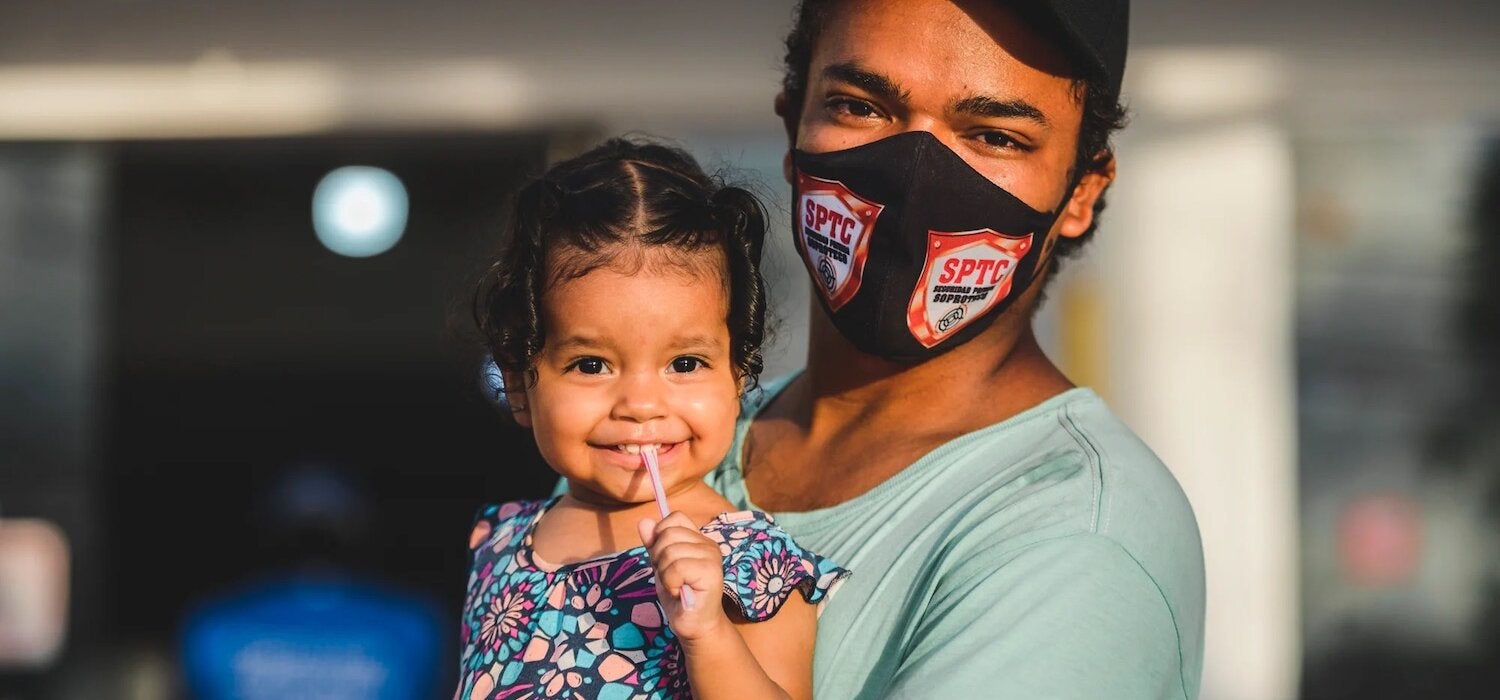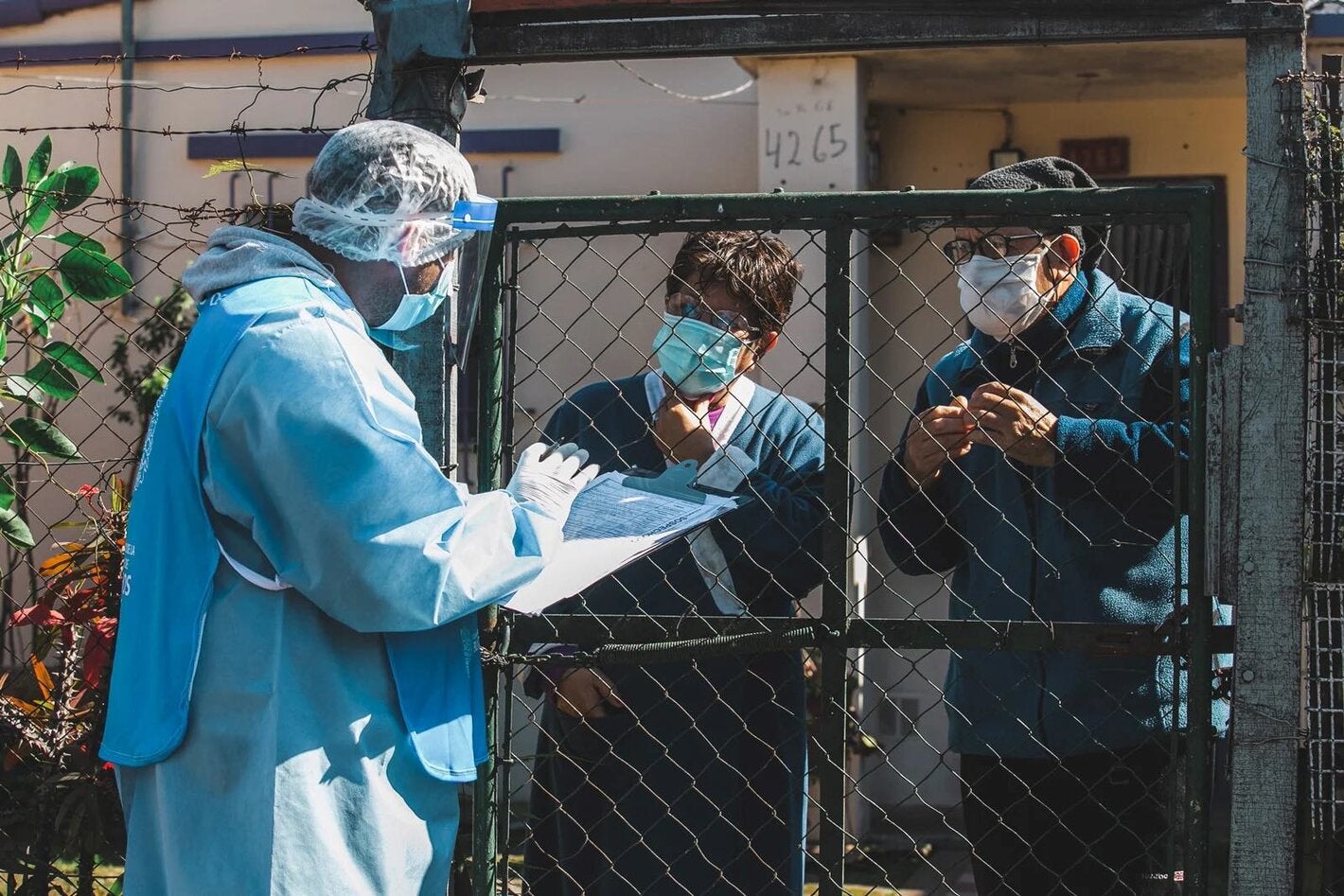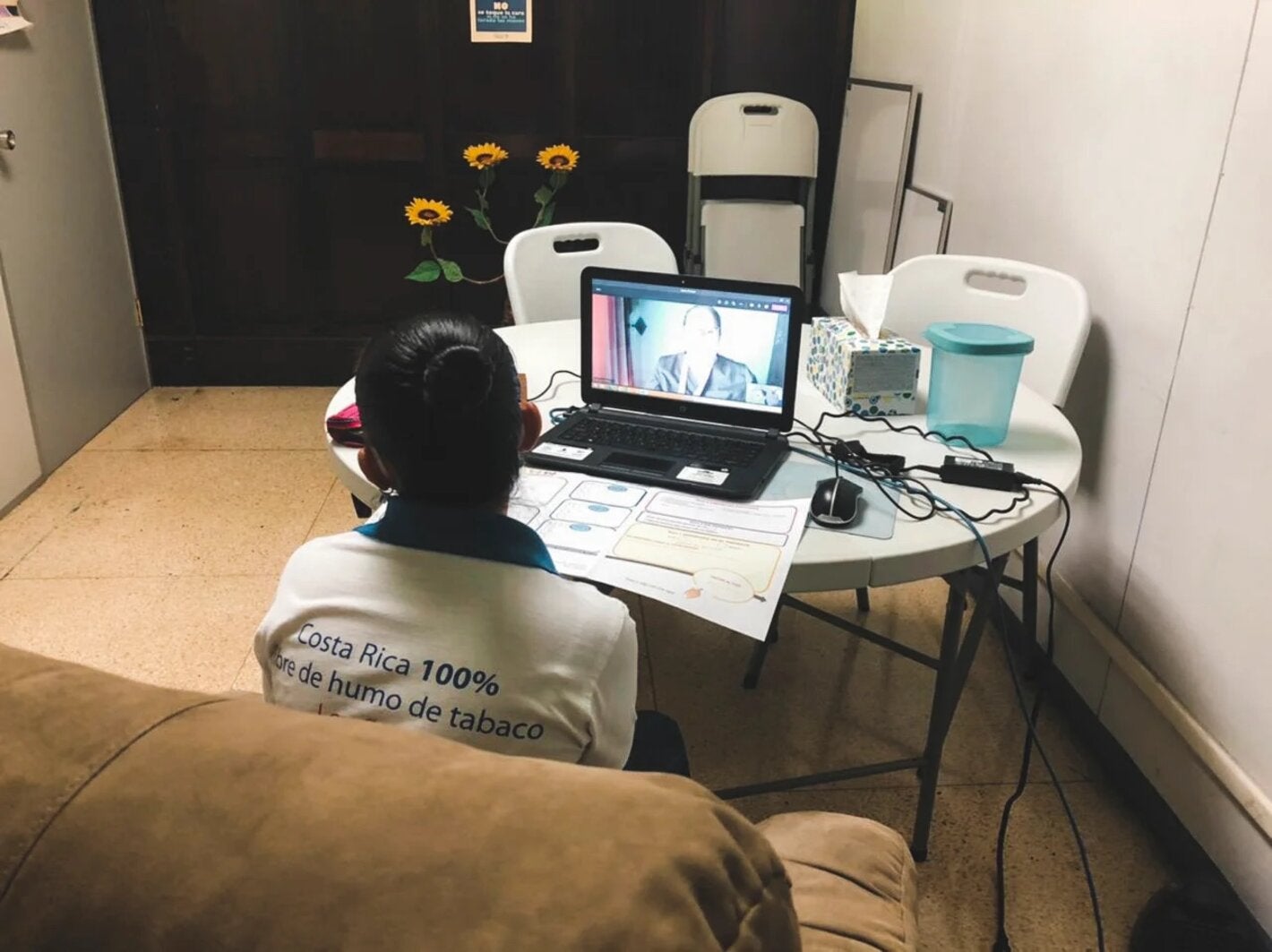THE ACTION
Mental Health Gap Action Program (mhGAP)
Faced with the interruption of mental health services in the context of the COVID-19 pandemic, the countries of the Region have developed strategies and tools to bring mental health care to the community and integrate it into care services primary.
Using the approach and training of the Mental Health Gap Action Program (mhGAP), the countries of the Region, with support from PAHO/WHO, have developed national and local strategies to reduce the gap in access to mental health services. Mental health managers have been trained to implement the mhGAP program with quality in non-specialized services and health professional primary care.
"Using this approach, we can train non-specialized personnel so that they have the ability to provide initial assistance, coordinate actions, make referrals as appropriate, and coordinate with other sectors, always based on the understanding that mental health is not solely an individual matter, but involves family and community."
- Delia Fuentes. Ministry of Health of Honduras.
"What we want is to have all our professionals trained so that they can provide care in cases involving mental health, neurological problems, or substance use issues. That is why the mhGAP guide is such a valuable tool which we have adopted and adapted for use in our country."
- Margarita Pinao, Ministry of Health of Perú.
The countries participating in the course have developed operational plans to implement the mhGAP program and are working on pilot projects from which lessons can be learned for expanding implementation. The countries have also made plans to train facilitators at the national level, who will then be able to train primary care personnel on a large scale and put the mhGAP program into operation.
"The mhGAP course is very important in Panama, because it helps us shape our plan to reorganize what we have, improve implementation, and above all define follow-up and monitoring mechanisms. We are successfully providing non-specialist primary health care personnel with the mental health knowledge and resources that make it possible for their work to reduce the mental health gap. The course has helped us improve referral and counter-referral systems as well as mental health records, and to give mental health care more visibility. "
- Edgar Agamés –National Institute of Mental Health Panamá.
If we bring mental health services closer to primary care, we bring it closer to the community and make services more accessible. We contribute to the prevention and to the promotion of mental health, to breaking down the barriers created by stigma and discrimination, to facilitating referrals and counter-referrals where specialized services are involved, and to promoting quality care with community participation and empowerment for users of our services.
"The mhGAP course prioritizes the provision of strategies for people in the community and health personnel to reduce anxiety and to be able to manage their daily lives during emergencies and crisis. Thus, primary care is the easiest way to get closer to the community and prevent the increase of mental health problems. Decreasing people´s anxiety, decreasing people´s fear."
- Edwin Romero, Ministry of Public Health and Social Asistance of Guatemala
"The mhGAP course is very important when it comes to key issues such as respecting human rights, combating stigma, training our professionals, and ensuring that the entire population has access to community-based care for mental health problems, and that the care is delivered with respect for cultural values.
- Margarita Pinao, Ministry of Health of Perú.



